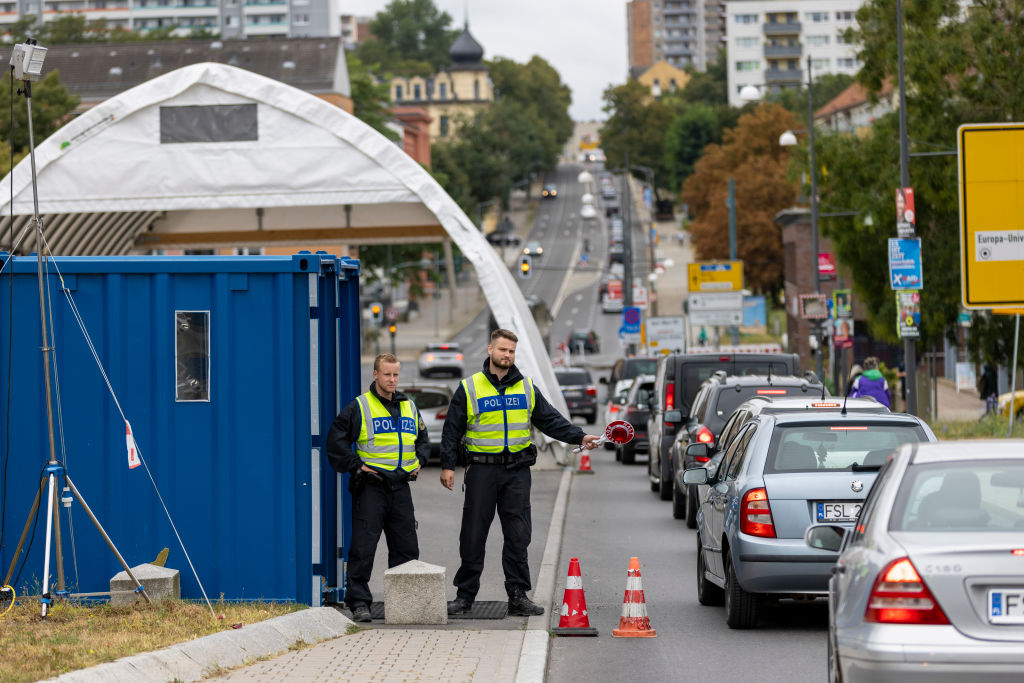Germany’s healthcare system could face meltdown if thousands of Syrian doctors working in the country return to their homeland, according to officials.
The chairman of the German Hospital Association (DKG), Gerald Gass, has warned of the dire consequences of a mass exodus of Syrian health professionals.
“We can understand that many of them want to return to their homeland, where they are urgently needed,” he told Der Spiegel news outlet December 9.
He stressed that their departure would strain Germany’s healthcare system. “If they leave in large numbers, it will undoubtedly be felt in staffing levels.”
A recent internal survey conducted by the Syrian Society for Doctors and Pharmacists in Germany (SyGAAD) revealed that 75 per cent of doctors with Syrian backgrounds were mulling a return to Syria following the fall of Bashar al-Assad’s regime there.
Speaking to Brussels Signal on December 17, Dr Mehiar Alkhashroum, a member of SyGAAD and a psychiatrist in Germany, said: “According to official statistics, approximately 6,000 Syrian doctors are currently practising in Germany. However, this figure doesn’t include physicians who have obtained German citizenship,” he said.
Alkhashroum claimed that the total number was closer to 10,000, reflecting the medical professionals who had arrived in Germany over the past 10-15 years.
But many more Syrians could be part of the system: “There is also an earlier generation of Syrian doctors, who had their own professional association, but they are not included in these current statistics,” he added.
He also acknowledged that the departure of Syrian doctors from Germany depended on a multitude of factors, especially on the establishment of a sustained period of stability in Syria.
According to Alkhashroum, there was a strong sense of duty among Syrian doctors to contribute to their country’s reconstruction and serve their communities. He also said that Syrian doctors had a better social reputation in their home country.
“In Syria, doctors traditionally enjoy high social recognition, contrasting with some experiences in Germany where medical professionals sometimes feel under-appreciated,” he said.
In his view, around two-thirds of Syrian doctors may return to Syria.
“I believe that over the next three to five years, assuming continued stability, we could see as many as 75-80 per cent of Syrian doctors returning to practice in Syria.”
German Health Minister Karl Lauterbach echoed the concerns, calling Syrian doctors “indispensable” to the German healthcare system.
“More than 6,000 doctors from Syria are currently working in Germany. They are fully integrated and essential for healthcare,” he said on December 9, adding that political rhetoric advocating for mass deportations is “deeply disappointing and unsettling” for these professionals.
In Deutschland arbeiten derzeit mehr als 6.000 Ärzte aus Syrien. Sie sind voll integriert und für die Versorgung unabkömmlich. Eine parteipolitische Wahlkampf Debatte für schnellstmögliche Abschiebungen („Charterflüge“) muss diese Menschen zutiefst enttäuschen und verunsichern
— Prof. Karl Lauterbach (@Karl_Lauterbach) December 9, 2024
The potential return of Syrian doctors comes at a time when migration has been increasingly dominating public debate ahead of the nation’s 2025 federal elections.
Following former chancellor Angela Merkel’s 2015 decision to accept more than 1 million asylum seekers, primarily from Syria, the country has since taken in an additional 1.2 million refugees from Ukraine.
This influx of migrants has taken place while the German economy is struggling, with many equating its poor performance with the significant number of arrivals.
Ahead of the anticipated 2025 federal election in Germany, migration has emerged as the second-most pressing concern for Germans, behind the economy.
The hard-right Alternative for Germany (AfD) party has called for Syrians who fled the Assad regime to return to their homeland. Germany has also frozen asylum processing for Syrians.
Employers, trade unions and business associations, though, have been stressing how much they are needed in a German economy facing deep labour shortages.
Still, as with Alkhashroum, who said he has been hoping to return for more than a decade, many may well leave Germany.
“Every day, I dream of returning to Syria, of celebrating alongside my fellow citizens, of sharing our tears of joy, and finally being able to voice all the thoughts I was forced to suppress for so long,” he told Brussels Signal.
“Although I haven’t been able to arrange travel immediately, I anticipate that within a few months, I will finally be able to visit my homeland after a 14-year absence.”
Germany and Austria have said they will pause asylum decisions for Syrians, citing changes in Syria’s political landscape following the toppling of the Assad regime. https://t.co/CeXrs5JeTN
— Brussels Signal (@brusselssignal) December 9, 2024





